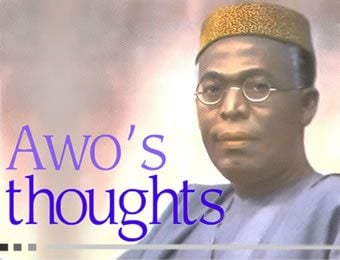All economists who subscribe to the over-investment and monetary theories of trade cycle-and they are much larger in number than those who do not-agree that booms and slumps are the result of disequilibrium between consumption or saving and investment. When Keynes formulated his famous saving-equals-investment theory, he had his finger right on the heart of the matter.
But his capitalist upbringing and orientation made him shrink from the stark logic of his theory, which is that, in order to avoid economic instability which the oscillation between boom and slump generates, Investment should be equal to saving, or should even sometimes exceed it. Keynes’s critics do not go as far as this, but merely content themselves with arguing that it is because saving and investment are not equal that the swing from boom to slump and vice versa occur. The introduction of the so-called period analysis by Robertson, Bawtrey, and others, that the equation of saving to investment is not meant by Keynes to be contemporaneous but only ex post facto, is at best an implicit substantiation of the contention that, over a period of home, saving and investment should be equal, in order to avoid economic instability, or alternation between boom and slump.
The sum total of all that has been said on this point is that the root cause of economic instability is, to put it in a simplified form maladjustment between the supply of money and the supply of goods and services. As long as savers and investors, both of whom are motivated by entirely divergent considerations in saving and investing, are separated from one another, so long will there be frequent maladjustment, and only chance equality, between saving and investment.
It is for all these reasons, therefore, that I concur with the word! of Professor Sigh as reported by Zielinski (Ibid. p. 117) as follows:
‘In other words, without drawing the” commanding heights” the public sector, it is not possible to shape the destiny of an economy: In the fields of banking and insurance, the obstacles which we noted in the introductory part of this Section are non-existent. We can afford, without undue delay and difficulty, to mobilise the amount of foreign exchange required for paying compensation to at the banks and insurance establishments in Nigeria; and we have, sufficient number of Nigerians who can competently take over ana manage the affairs of all the foreign banks and insurance undertakings in the country.
(vi) INFRASTRUCTURAL OCCUPATIONS: These are the occupations of the doctor, nurse, dispenser, teacher, lawyer, engineer architect, accountant, clergyman, imam, domestic servant, journalisl writer, publisher, civil servant, member of the armed forces policeman, prison warder, judge, local government official, etc Except in so far as they are voluntarily or compulsorily brought 01 impressed into government services and public enterprises, an: 5. contractually employed in private enterprises and services, those if these occupations would be left free to pursue their own profession and vocations, subject to such laws as may, from time to time, b made for the regulation of their activities and earnings, and to ensun 6. that what they do is in the best interests of our economy and peoples There are two observations which I would like to make befon coming to the end of this Section.
Firstly, under this Section, I have again and again stressed tha government would give financial, technical, and manageria assistance to co-operative organisations. But it is necessary to mak’ 7. it clear, beyond any misunderstanding, that the members of ever) co-operative association, whether they are farmers, miners manufacturers, drivers, wholesalers, or retailers, would be left fre to share among themselves, in accordance with their individual menta and physical contributions, whatever profits they may make in thei respective enterprises, subject only to payment of prevailing taxes and to the maximum ceiling which Government may, from time to time, impose on all remunerations. It follows, therefore, that it is possible in the people’s republic of Nigeria for a farmer, driver, or retailer, to earn as much income as the highest paid public servant in the land.
Secondly, under the new dispensation, no one would be allowed to receive any unearned increment by way of compensation in respect of any piece of land claimed by him or his family or any group and interest to which he may belong. I have made it clear in The People’s Republic that land is, pure and simple, the gift of Nature. It follows, therefore, that compensation can only be legitimately claimed and paid not in respect of land per se, but in respect of expenditure incurred in improving it, in erecting a building thereon, or in cultivating any crap on it. Wherever necessary, however, an alternative piece of land or building of the same size and quality may be given to the person or persons concerned, for the purpose of resettlement.






